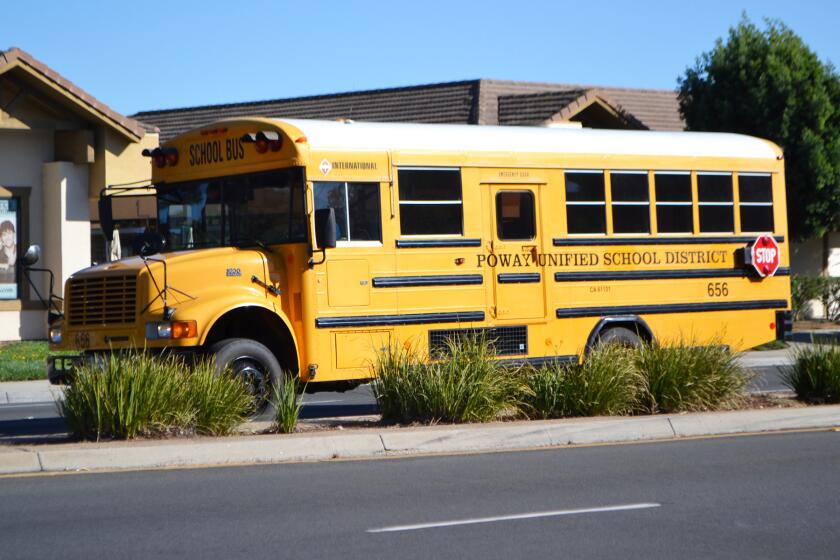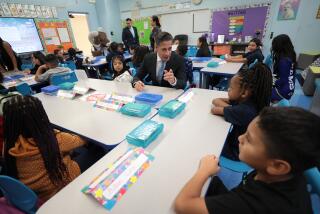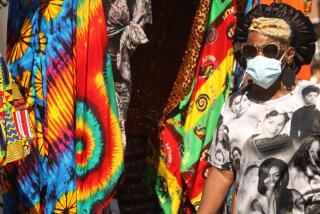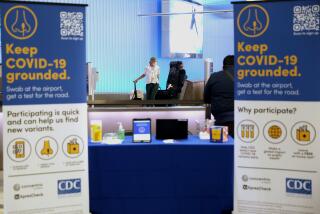School coronavirus cases down 70% in L.A. County since start of spring term
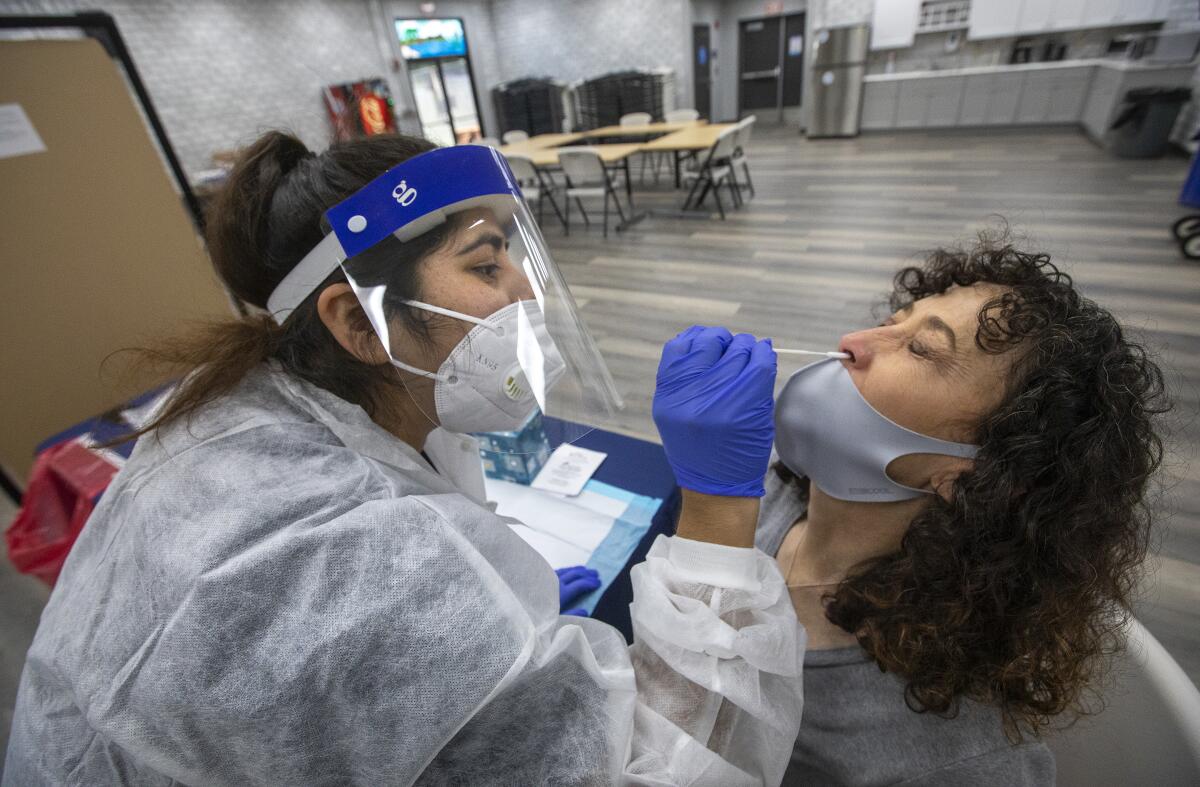
- Share via
Coronavirus infections have declined about 70% since the start of the spring semester among students in L.A. County, but overall rates remain significantly higher than they were before the current surge.
The decline in the latest countywide figures, released Thursday by Public Health Director Barbara Ferrer, aligns with other data suggesting that the peak of the explosive growth due to the Omicron variant has passed. Health officials warned, however, that it remains important to take precautions — many of which remain required under local health orders.
Among the rules that Ferrer reiterated Thursday was the requirement for students and school staffers to continue to wear masks indoors and outdoors until there is further significant improvement in health metrics.
For the third week in a row, the test positivity rate for schools has declined. More than 486,000 tests were administered from Monday to Friday last week, with 4% indicating a coronavirus infection. In the beginning of January, the test positivity rate was 14%.
“The safety measures that schools have implemented along with the slowing that we’re seeing of community transmission has likely contributed to these declines,” Ferrer said. “And the continued use of our public safety measures will help keep our schools safe and open.”
NFL officials joined with local leaders to reiterate that masks will be required for fans at Super Bowl LVI in Inglewood.
The vast majority of the school-related data reported to L.A. County are from the weekly testing of students and staff members at the Los Angeles Unified School District, which has about a third of the county’s K-12 students.
From Jan. 3 through 10, just before classes resumed after winter break, about 17% of L.A. Unified tests came back positive. That worked out to 62,704 students with an infection who had to stay home until cleared for return.
The number of infections has declined steadily since.
For the week beginning Jan. 17, the district recorded 25,265 positive cases among students and 2,734 positive cases among employees, with 41,428 students and 836 employees identified as close contacts. Because of revised quarantine rules, only 25% of students were sent home and even fewer employees; last semester, all close contacts needed to quarantine at home for up to two weeks.
During that week, the seven-day average for positive tests was 8% for students and 4.9% for employees.
Last week, 14,759 students and 1,591 employees tested positive at L.A. Unified, and the seven-day test positivity average was 4.9% for students and 3.1% for employees.
Starting that week, the district virtually discontinued individual contact tracing. At least partly as a result, just 2,546 close contacts had to quarantine. Home quarantines are still in effect for the youngest students — in early education centers — and for students who were exposed outside of school.
The bill under consideration would provide state funding for daily transportation for all of California’s 6 million K-12 students starting next year.
These rates, while vastly improved, are still much higher than before the Omicron surge. In the last week of school before winter break — when the Omicron variant started to push up numbers — the student infection rate was 0.22%.
Put another way, in testing during the week that ended Dec. 17, about 2 students in 1,000 tested positive. In early January baseline testing, just before school restarted, about 170 students per 1,000 tested positive. And in the last full week of January, about 50 students per 1,000 tested positive.
Revised district policies regarding close contacts allow exposed individuals to remain on campus, provided they continue to test negative, have no symptoms and were following safety protocols at the time of the exposure.
L.A. Unified operates the largest school coronavirus testing program in the nation, with the goal of carrying out more than 500,000 mandatory tests every week for all students and staff.
More to Read
Sign up for Essential California
The most important California stories and recommendations in your inbox every morning.
You may occasionally receive promotional content from the Los Angeles Times.

